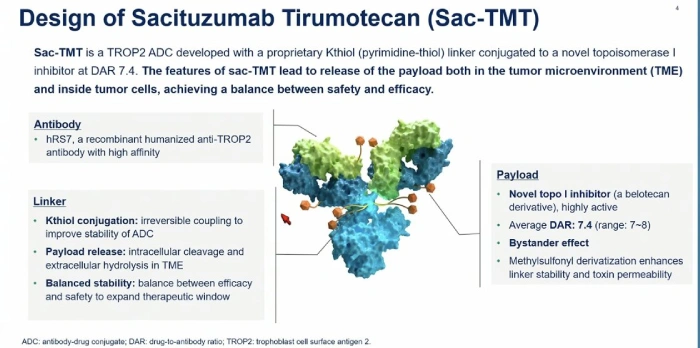FDA Grants Orphan Drug Designation for Novel Muscle Regeneration Therapy
IPS HEART, a pioneering biotechnology company, has recently made significant strides in the field of muscular dystrophy treatment. The company’s innovative therapy, GIVI-MPCs, has been awarded Orphan Drug Designation (ODD) by the U.S. Food and Drug Administration (FDA) for its potential in treating Becker Muscular Dystrophy (BMD). This designation comes on the heels of promising results demonstrating the therapy’s unique ability to generate new muscle tissue with full-length dystrophin.
The company’s research has shown impressive outcomes across various models, including dystrophic pigs, young and aged Duchenne Muscular Dystrophy (DMD) mice, and a sarcopenia mouse model. In all cases, GIVI-MPCs demonstrated the capacity to create new human muscle with full-length human dystrophin. This achievement is particularly noteworthy as it addresses a critical limitation of current gene therapies, which focus primarily on delivering partial-length synthetic dystrophin but cannot regenerate lost muscle tissue.
The FDA had previously granted Orphan Drug Designation to GIVI-MPCs for DMD, underscoring the therapy’s potential to revolutionize treatment for multiple forms of muscular dystrophy. This latest designation for BMD further solidifies the platform’s versatility and promise in addressing these devastating diseases.
In addition to its advancements in skeletal muscle regeneration, IPS HEART has also made progress in cardiac muscle therapy. The company has been awarded Rare Pediatric Drug Designation for its ISX9-CPCs in the treatment of Duchenne cardiomyopathy. This therapy has shown the ability to generate new, functional cardiac muscle, addressing another critical aspect of muscular dystrophy that affects both skeletal and cardiac muscles.
IPS HEART’s CEO, Rauf Ashraf, expressed optimism about the company’s future, stating that they are on track to become the first to introduce truly disease-modifying therapies for muscular dystrophy. Unlike current treatments that primarily offer symptomatic relief, IPS HEART’s approach aims to address the underlying causes of muscle degeneration.
The company has successfully completed its second pre-IND meeting with the FDA, which included approval of their proposed Phase I/II clinical trial design. This milestone, attended by four FDA branch chiefs, demonstrates the regulatory body’s interest and support for IPS HEART’s innovative approach.
As IPS HEART prepares to advance both GIVI-MPCs and ISX9-CPCs into human clinical trials, they are actively pursuing partnerships with major pharmaceutical companies. The company’s presence at the J.P. Morgan Healthcare Conference underscores its commitment to finding strategic collaborators to accelerate the development and eventual deployment of these groundbreaking therapies.
The urgency of their mission is highlighted by the numerous DMD patients who have directly reached out to IPS HEART, expressing their desire to participate in future clinical trials. This patient interest not only underscores the unmet medical need but also the hope that IPS HEART’s therapies represent for those affected by muscular dystrophy.
Commentary by SuppBase columnist Alice Winters:

IPS HEART’s recent achievements in the field of muscular dystrophy treatment mark a potential paradigm shift in how we approach these devastating genetic disorders. The FDA’s granting of Orphan Drug Designation for GIVI-MPCs in both DMD and BMD is a significant endorsement of the therapy’s promise, particularly given the unique mechanism of action that sets it apart from current treatment modalities.
The ability to regenerate muscle tissue with full-length dystrophin addresses a fundamental limitation of existing gene therapies. While current approaches focus on delivering partial-length synthetic dystrophin, they fail to address the progressive muscle loss that characterizes these disorders. IPS HEART’s technology, if successful in clinical trials, could offer a more comprehensive treatment strategy that not only halts disease progression but potentially reverses some of its effects.
The company’s dual approach, targeting both skeletal and cardiac muscle regeneration, is particularly noteworthy. Muscular dystrophy patients often face a two-front battle against muscle degeneration, and a therapy that addresses both aspects could significantly improve quality of life and potentially extend lifespan.
However, it’s crucial to temper optimism with caution. While preclinical results are promising, the path from animal models to human clinical success is often fraught with challenges. The complexity of muscular dystrophy and the variability in patient presentations mean that translating these results to human subjects may present unforeseen obstacles.
Moreover, the regulatory hurdles for cell-based therapies are significant. While the FDA’s engagement and approval of the Phase I/II trial design are positive signs, the road to full approval and commercialization remains long and uncertain.
The company’s pursuit of partnerships with major pharmaceutical companies is a smart strategic move. Such collaborations could provide the resources and expertise necessary to navigate the complex landscape of clinical development and regulatory approval. However, it also raises questions about potential conflicts between the need for rapid advancement of these therapies and the commercial interests of large pharmaceutical partners.
In conclusion, IPS HEART’s advancements represent a promising development in the field of muscular dystrophy treatment. If successful, their approach could offer hope to patients who currently have limited treatment options. However, stakeholders should remain cautiously optimistic as the therapy progresses through clinical trials. The coming years will be critical in determining whether this innovative approach can translate its preclinical promise into real-world clinical benefits for patients with muscular dystrophy.



